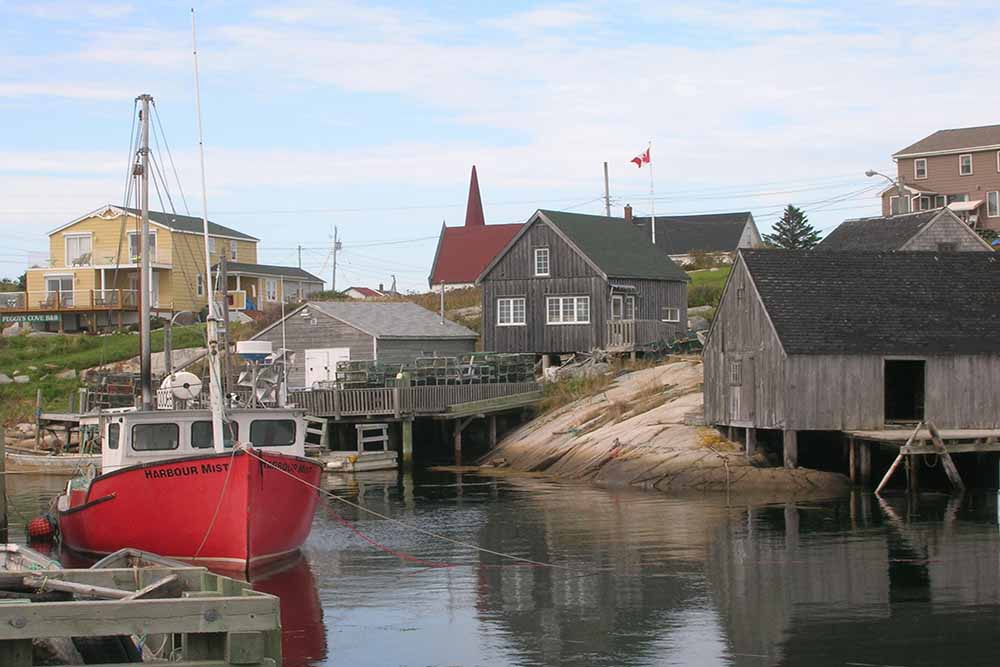A month ago, the Chronicle Herald published an article in which I argued that the Atlantic Canada economy is unsustainable and that the region has become a major burden on Canada. The starkest evidence of that is that other Canadians are obliged to contribute $6,400 to support each Atlantic Canadian each year.
The usual tired arguments come out every time commentators point out the risks of this. For example, some observe that the region educates so many people that it partly offsets the region’s financial deficit even though they never talk about the brain drain the other way – the number of educated people from the rest of Canada that live in the Atlantic region.
Commentators in the Atlantic region always ignore the changing political forces and economic circumstances in Alberta and Ontario that make it more difficult for taxpayers in those provinces to continue to support Atlantic Canadians.
In her recent report on the Newfoundland and Labrador economy, Dame Moya Greene confirmed many of the themes in my earlier article in her review of the grave fiscal and economic problems facing that province. She noted:
-the fiscal challenges are entirely the province’s own doing because it has spent beyond its means for years.
-expectations of government in the province are unrealistic. Many expect governments to create jobs, but of course, they cannot do so except in the public sector.
-federal bailouts are not the answer to current fiscal and solvency problems in Newfoundland and Labrador.
-people expect governments to be everything to all people. This has displaced the private sector and resulted in a relatively weak market economy.
These observations and many others like them also apply to the other Atlantic Provinces because all three are fiscally dependent on taxpayers elsewhere. The net federal transfer to them from these taxpayers ranges from about 18% of GDP in New Brunswick to a remarkable 21% of GDP in PEI.
Fortunately, Ms. Greene has made many recommendations based on these and other fundamental themes. Nearly all are broadly similar to the steps many independent commentators feel should be implemented by the other Atlantic provinces.
The problems these provinces and Manitoba face, including probable solvency issues, are like those found in Newfoundland and Labrador. Solvency problems are almost certain as Bank of Canada purchases of provincial bonds end and as interest rates begin to rise.
Some of Ms. Greene’s most significant specific recommendations are:
-reduce core provincial expenditures by 5% annually, with no growth for six years.
-change public sector defined benefit plans to defined contribution plans. Aside from cost savings, this would reduce the extent to which public sector employees in the region are overcompensated relative to their private counterparts.
-implement sunshine lists so that the compensation and benefits received by each provincial employee above a particular level of compensation are made public.
-sell the Newfoundland and Labrador Liquor Corp (and similar organizations in the other provinces) to generate cash and permit greater government focus on serious economic issues.
-reduce funding to universities and community colleges by 5% each year for the next six years. If adopted by the other provinces, this should encourage restructuring and program consolidation which is desperately needed.
-make significant reductions in health care expenditures. Ms. Greene noted that Newfoundland and Labrador has among the highest expenditures on health care among the provinces with the poorest results. Clearly there is a great deal of waste in its health care system.
-taxes on vacation homes should be implemented in Newfoundland and as appropriate in the other provinces.
It is unlikely that changes of the type recommended by Ms. Greene would be enough to make the region self-sufficient within a reasonable time and that other measures should be considered. These could include:
-the federal government should adapt equalization to the needs of each region. There should be a separate component for Atlantic Canada, another for Quebec and another for Manitoba.
-major efforts should be made to shrink the overblown public sectors in the Atlantic provinces by establishing an Atlantic Canada Public Sector Restructuring Commission with the power to direct all types of institutions to merge, close or shrink. Decisions of this commission would be final unless overturned by all four provinces acting together.
-Equalization should be reduced by 10% each year for the next five years. This would help force the pace of mergers, closures, and size reductions in the four provincial public sectors. The wording in the constitution, contrary to common opinion, does not impede this.
-the needs of provincial populations should be weighed equally with revenue and taxation considerations in determining equalization payments. It should astonish everyone that this is not presently done.
Making this change now would ensure that the program has some relationship to how Canadians live and work; demographics; the economic circumstances of different provinces, and to other related issues.
-regional subsidies associated with federal programming other than equalization constitute about 75% of the net transfer to the region. These should be identified and tabulated, beginning with those linked to EI which are among the largest but extending to all programs over a reasonable minimum threshold.
-regional subsidies associated with federal employment above the average levels necessary to provide federal services should be identified and tabulated so that policymakers can begin to correct the large imbalances that exist in this area. (For example, disproportionate federal employment in Nova Scotia, aside altogether from defence employment, conveys a subsidy to that province that is nearly as large as equalization.)
In summary, Atlantic Canadians should focus like a laser on the $6,400 annual spending deficit each of them has with the rest of Canada because it is a direct short-term threat to everyone if current circumstances change.
The way Atlantic Canada manages public finances is also an undignified way to live: hand to mouth, always dependent on taxpayers elsewhere and an impediment to national economic performance.
Delay in taking steps to address the region’s spending excesses and resulting slow growth is not really an option because every day only adds to the length and complexity of the journey that will have to be made.
David Mackinnon is a senior fellow at the Frontier Centre for Public Policy. P.E.I. native David MacKinnon was educated at Dalhousie and York universities. He worked in senior economic development roles in both the Nova Scotia and Ontario public services. He is also a former CEO of the Ontario Hospital Association.
Photo by John McArthur on Unsplash.



